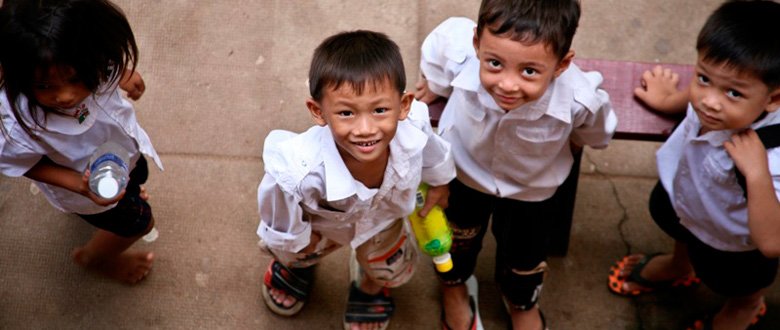
VVOB does not carry out its programmes on its own. They are managed by our Cambodian partners, who keep the responsibility of implementing their plans with our assistance. It is an approach that ensures that ownership and accountability have meaning. We therefore offer technical assistance aimed at facilitating the acquisition of capacity by our Cambodian partners, both at individual and institutional level.
We believe that is essential in order to ensure that the activities are useful for the target groups and in line with their true requirements. By taking as a starting point the needs of the local partner institutions and target groups, the quality enhancement of education and training is not just a temporary achievement. It is a lasting development.

“The techniques of biology experiments that I have learnt in the SEAL programme, challenge the students and encourage them to think more. I also see that they start to apply them in their own teaching practice.”
Hou Chansara, teacher trainer biology
The focus of VVOB’s technical assistance is at meso-level such as teacher training centres or training-related departments and institutes. From this position we are able to reconcile the macro-level policies with the needs and circumstances at the micro level where implementation takes place. The alignment of our interventions with local policies and their harmonisation with other donors through partnerships, safeguard the relevance of VVOB’s programmes.
Examples of specific results include improved training skills and subject knowledge, updated curricula and learning materials, strengthened quality assurance as well as professional development processes. That’s how VVOB Cambodia put the Paris Declaration on Aid Effectiveness into practice.
At a glance:
The Paris Declaration on Aid Effectiveness
- Ownership - Developing countries set their own strategies for poverty reduction, improve their institutions and tackle corruption
- Alignment - Donor countries align behind these objectives and use local systems
- Harmonisation - Donor countries coordinate, simplify procedures and share information to avoid duplication
- Results - Developing countries and donors shift focus to development results and results get measured
- Mutual Accountability - Donors and partners are accountable for development results




